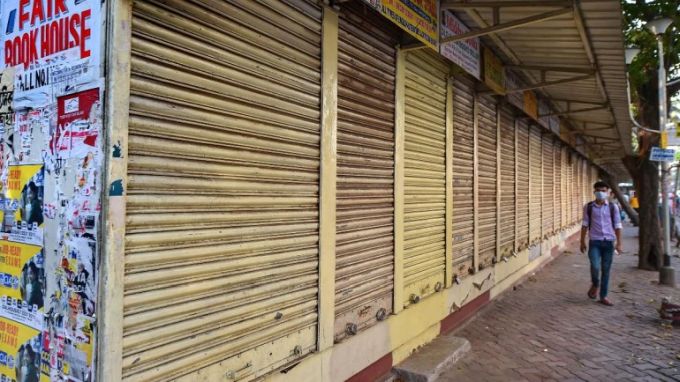There are about 400 million people in India’s labor market. Of those, more than half are self-employed, and 121 million are casual workers, meaning they had irregular work and were only paid for the days they worked.
Those people – India’s cleaners, household workers, and construction workers – are the people who could be hurt by lockdowns.
Chief minister of Uttar Pradesh state Yogi Adityanath said that each of the 1.5 million daily wage laborers in his state will be given 1,000 rupees via direct transfer to help them meet their daily needs. Tamil Nadu Govt has also announced similar measures.
But even if the authorities are able to roll out financial help for daily wage workers, not everyone will benefit.
According to government estimates, there are around 102 million people – including 75 million children – who do not have an Aadhaar card. Most of these people are essentially undocumented – and are less likely to receive a government handout.
How do businesses cope up?
Prime Minister Modi, during his address to the nation on March 24 said “In the coming few days it is possible employees may not be able to come to office or your homes. In such a case, do treat them with empathy and humanity and not deduct their salaries. Always keep in mind that they too need to run their homes, protect their families from illness.”
The question is how do businesses generate revenue to sustain their businesses and pay salaries?
While, individuals mainly who are self-employed, have small businesses, have to pay towards rents for shops, small vendors etc have taken loans for various purposes such as home, car, business or any other personal requirements are more concerned about their immediate loan liabilities.
Denmark and Britain have agreed to pay up to 80% of every citizen’s salary for the next three months and provide immediate working capital to small businesses.
The US has put forth an Economic Injury Disaster Loan programme for small businesses, capped at Rs. 15 Cr. for each business. These loans will be forgiven as long as employers do not terminate their employees.
India should adopt similar policies. The need for immediate capital has never been more dire.
How do middle class employees pay up?
Many employers have asked employees to go on unpaid leave or have offered 15 day salary to their employees.
This has crippled the repaying capacity of many individuals. Keeping this in mind The Reserve Bank should allow banks to give relaxation to customers in paying their EMIs on loans taken from banks.
Delayed EMI repayment will greatly help in these times of crisis.
Prime Minister Modi has appealed. The citizens have responded positively thus far – but for how long?

